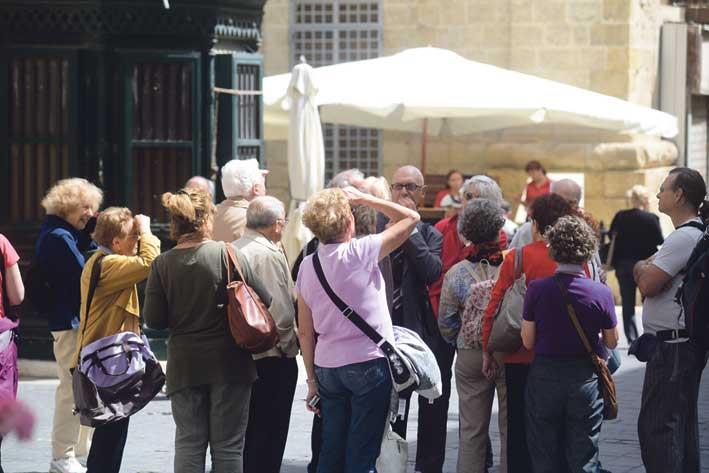Finance Minister Prof. Edward Scicluna revealed that the improvement of the quality of life, with a particular focus on infrastructure, education and health care, will be central to the upcoming budget.
Speaking at a consultation meeting with the Malta Council for Economic and Social Development in Valletta over the pre-budget document, which contains 130 proposals, Prof. Scicluna said that discussions were based on three levels ‒ bilateral meetings between ministers, meetings with civil society and meetings with the MCESD. The minister said that there was a lot of common ground between the MCESD and government.
Parliamentary secretary Aaron Farrugia also highlighted the importance between social partners, who defined MCESD as "prosperity with a purpose"and a "bridge to the future". The meeting between the MCESD and the minister took place behind closed doors.
Infrastructure and Public transport
The €700m investment on roads around the island was a key proposal in the Labour Party's successful election campaign and the pre-budget documents revealed that government aims to establish a new agency in order to plan and manage the building and maintenance of the roads network. This will be supported by new public-private financial instruments and investments.
The tunnel project between Malta and Gozo is also highlighted as a major project in the document, which states: "A number of technical and scientific studies have now been completed ‒ geological tests known as Investigative Coring are being conducted on the seabed between Malta and Gozo."
There will also be further investment in a greener transport system through incentives to encourage people to use other forms of transport.
Students, children, pensioners and people with disability will be able to use public transport free of charge, while electric and auto-gas vehicles will be exempt from a registration tax.
All students (government, church and independent) will also benefit from free supervised school transport.
Economy
The document places particular focus on the importance of Small and Medium Enterprises in the Maltese economy and states that it will widen the bracket of eligibility for incentives while also maintain access to finance and assistance to start-ups.
Government will also initiate a number of projects to cater to the demands for space by SMEs.
Brexit, the document says, will also create a number of opportunities and government will target companies looking to leave the UK to find an alternative base in Europe. This will also lead to the fine-tuning of Identity Malta's operations.
A taskforce will also be created to push for further simplification and less bureaucracy at a rate of 25% to 35%.
Financial services sector
The setting up of the Malta Development Bank is high on the agenda in this sector. The document says that this will encourage greater competition and efficiency. It would also lead to less systemic risk and contribute to financial stability.
The Malta Stock Exchange will be implementing a strategy to develop liquid, efficient and a fair securities market.

Tourism
The document states that the next three years will focus on sustainable tourism, achieved through an airline route development strategy, which will create year-round connectivity while also tapping new markets. Air Malta, it says, is pivotal to achieving these objectives.
There will also be a proper upkeep of the general infrastructure in tourism zones.
Water and energy
Government will continue to make improvements in the water infrastructure and investment to upgrade reverse osmosis plants and develop a new desalination plant in Gozo.
A national water conservation plan will be launched, while new and innovative monitoring technologies will be installed in aquifer systems.
With regards to energy, government will continue to work on the gas pipeline and will pursue its decarbonisation strategy.

Healthcare
Investment will see the introduction of new medicines, primary care, IVF, new specialised hospitals and explore further opportunities between government and the private sector.
The parking problem at Mater Dei is due to be addressed with the building of a five-storey car park.
Psychiatric patients will move to Mater Dei to allow investment to Mount Carmel Hospital.
Poverty, social solidarity and social inclusion
Government appears to be intent on strengthening the sustainability of social benefits namely pensions, while also continuing its drive to further reduce the risk of poverty.
The disability sector was a focal point of the previous legislature and the document indicates that government will continue to make this sector a priority by opening three new homes for the disabled.
There are also commitments to build new housing units while also regenerating existing ones and purchasing properties from the private sector to lease out to families waiting for social accommodation.
Gozo
Beyond the creation of the tunnel, the document calls for greater digital connectivity between Malta and Gozo, while also exploring new niche markets for the island.
Environment
The document refers to the constitutional amendment which will enshrine the environment in the constitution. It will also launch a consultation exercise for 24 sites to be declared public domain.
The agricultural sector will also be developed.